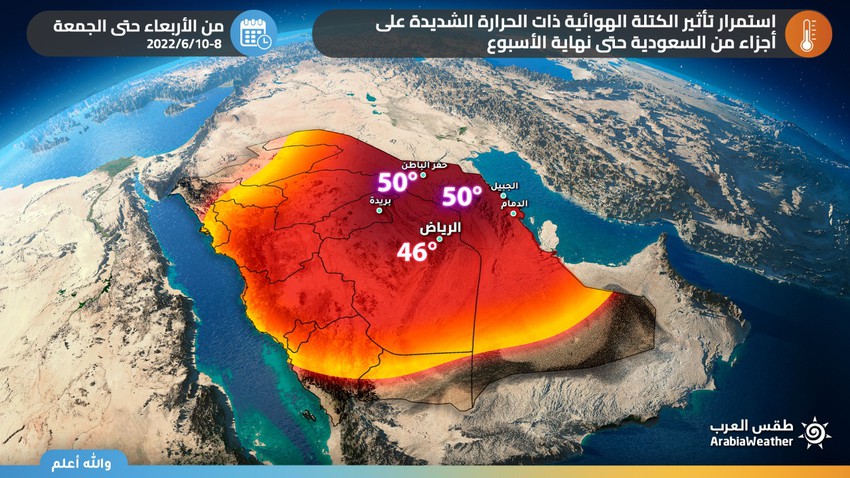Saudi Arabia's meteorological agency has issued a fresh warning regarding a scorching heatwave gripping the nation. The relentless heat, characterized by temperatures exceeding 50 degrees Celsius (122 degrees Fahrenheit) in some regions, has sparked concerns about public health and safety.
This scorching spell comes on the heels of the deadly heatwave that plagued the kingdom during the 2024 Hajj pilgrimage in June. Over 550 pilgrims lost their lives to heatstroke and related complications, highlighting the increasing dangers posed by extreme weather events.
Authorities have urged residents to stay indoors during peak sun hours, typically between 11 am and 4 pm. They've also emphasized the importance of staying hydrated, wearing protective clothing, and avoiding strenuous outdoor activity. Public health officials are recommending consumption of cooling beverages and electrolytes to prevent dehydration and heatstroke.
The heatwave has also placed a strain on the country's power grid, with electricity consumption soaring as residents crank up air conditioners to cope with the stifling temperatures. To counter this strain, the Saudi Arabian government has implemented measures to increase power generation capacity and encouraged residents to adopt energy-saving practices.
Experts attribute the intensifying heatwaves to climate change. A recent study by a Saudi Arabian research group indicated that the country's average temperatures are rising by 0. 4 degrees Celsius per decade. This alarming trend is expected to exacerbate heat-related risks in the future.
Beyond the immediate health risks, the scorching temperatures are disrupting daily life in Saudi Arabia. Construction projects have been hampered due to safety concerns, while outdoor markets and other commercial activities have seen a decline in foot traffic.
The scorching heat is also impacting the agricultural sector. Crops are susceptible to heat stress, potentially leading to yield reductions.
The Saudi Arabian government is grappling with the long-term implications of climate change. Initiatives are underway to develop heat-resistant crops and implement sustainable urban planning practices to mitigate the urban heat island effect.
While the current heatwave is expected to subside eventually, Saudi Arabia faces the daunting task of adapting to a hotter climate. The scorching temperatures serve as a stark reminder of the challenges posed by climate change and the urgent need for sustainable solutions.

